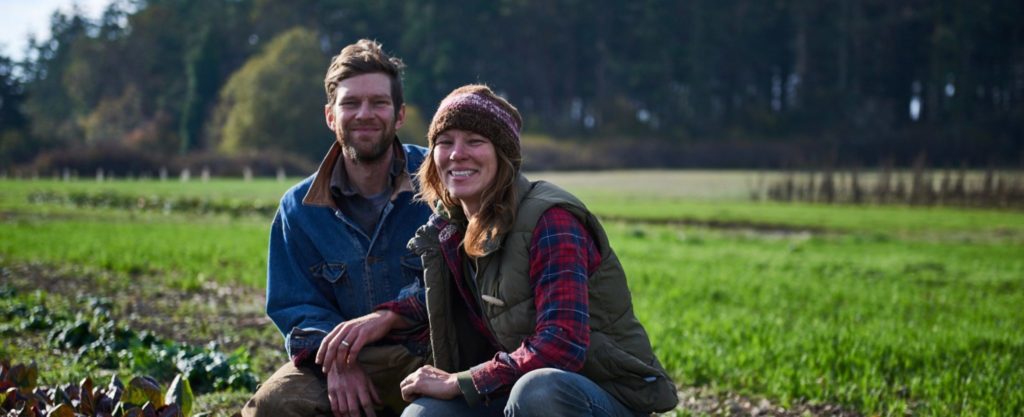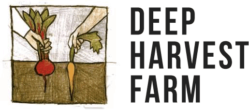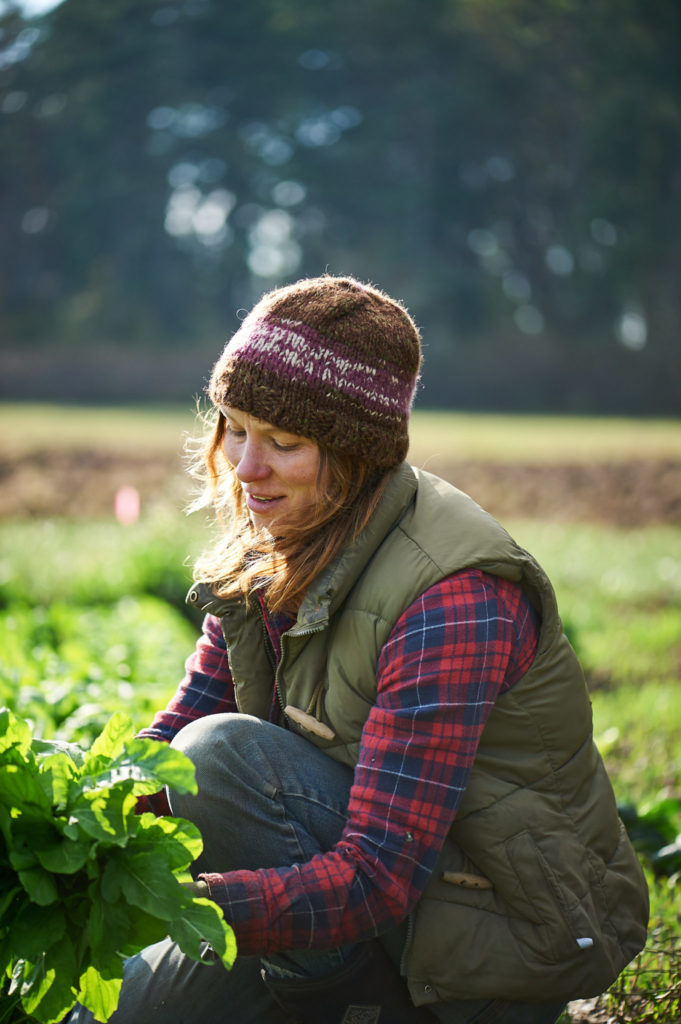 Organic
Organic
Here at Deep Harvest Farm, we only grow 100% Certified Organic seeds. For us “organic” is more than a value, but a reality embedded into each and every seed. Without being propped up by chemicals, our plants are forced to scavenge nutrients, fend off pests and diseases, and grow big and strong on their own genetic merits. We reject the use synthetic herbicides, pesticides and fertilizers, instead encouraging our plants to grow in low-input soils fed by composts, green manures and organic-based fertilizers. We only save seed from the plants that thrive best in our organic conditions, increasing the chances that their genes will yield success in your organic gardens and fields, too.
Organic seeds are a much more environmentally sound alternative to conventionally grown seeds. Seed crops must keep growing beyond their vegetative stage and into their flowering, or reproductive, stage. This can take a full growing season for annuals and well over a year for certain biennial crops. Their increased lifespan means that seed crops must endure a longer onslaught of pests and diseases, as well as demand more nutrients, than their vegetable counterparts. To meet these challenges, many conventional seed farmers bolster their plants with increased levels of petroleum-based pesticides, fungicides and fertilizers. Since seed crops are not grown for direct consumption, regulators allow higher-dose applications of chemicals than they do for food crops. Heavy use of chemicals continues to result in devastating environmental consequences including degradation of soil ecosystems, pollution of public waterways and decimation of local pollinator and wildlife populations. After years of being grown in these conditions, many varieties of seed have become genetically adapted to only thrive in high-input, chemically-laden environments. We want to be part of a food system that prioritizes healthy soils and ecosystems, and where crops can grow vigorous without the support of chemicals. It’s important that our seed also reflect these values.
Finally, by buying Certified Organic, you can be assured that your seeds have not been genetically-modified, or crossed with other GM plants. See our “Safe Seed Pledge” for more info on GMOs.
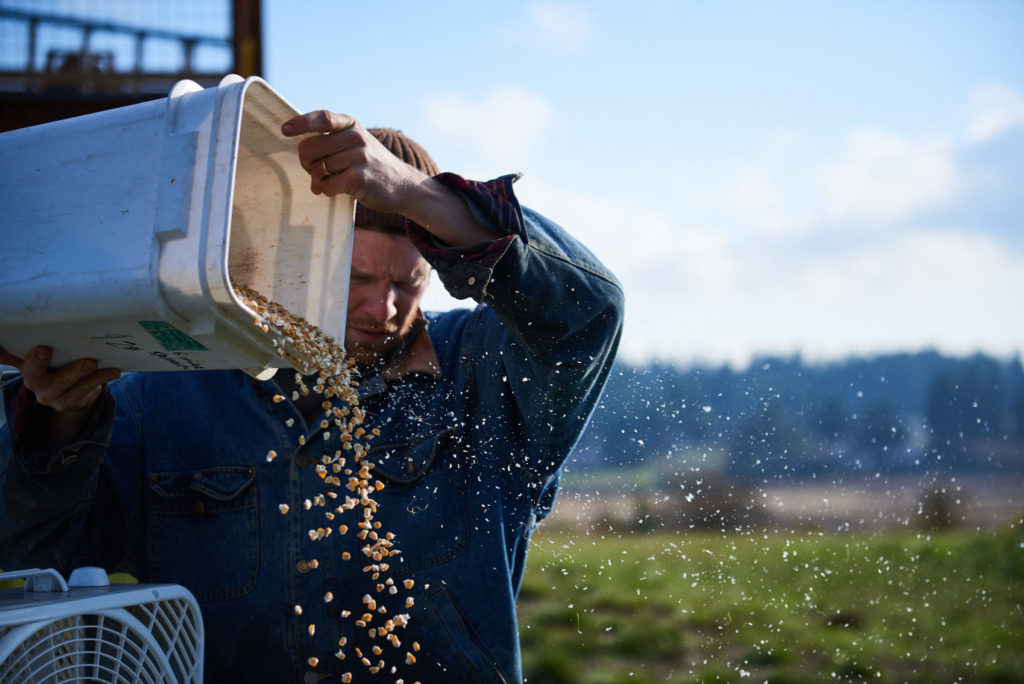 Open-Pollinated
Open-Pollinated
We believe that farmers and gardeners are the proper stewards of seeds, not corporations. We only sell open-pollinated seeds (OPs), meaning that you can save these varieties at home, further adapting them to your unique preferences and growing conditions.
Open pollinated varieties reproduce by natural mechanisms of pollination, such as wind, insect, human or self-pollination. This unrestricted flow of pollen means that OPs are more genetically diverse than hybrids, and are more adaptable to different growing climates and environments. As long as pollen isn’t moved between two varieties of the same species, you can be sure that your OP variety will breed true-to-type, resembling the original variety on which you saved seed.
Over the last century, the seed industry has experienced an astronomical rise in the number of hybrid varieties (aka F1s). F1s are created by crossing two parent lines together in order to create a novel, genetically-uniform variety. F1s are often heralded for their uniformity or increased “hybrid vigor,” and have become dominant across most sectors of commercial agriculture. While F1s do often carry beneficial traits, they are genetically unstable and therefore cannot successfully be saved for seed. Their offspring will likely be an undesirable genetic mishmash of both parent varieties, offering few of the benefits of the F1. The grower must therefore return to the seed company year after year to continue enjoying this variety.
We believe the increasing dominance of F1 hybrids have played a major role in the destruction of local agriculture systems, as they sever the bond between the grower and their seed, making him or her dependent on an increasingly consolidated, less-diverse, corporate seed industry. In this power structure, farmers have become end consumers, as opposed to the sovereign producers they’ve always been.
Beyond F1s, we also reject varieties with any type of proprietary patent, such as Plant Variety Protections (PVPs) or utility patents. Like hybrids, patents prevent the saving, sharing and further adaption of varieties by seed saver, farmers and plant breeders. All of our seeds are “open-source,” so we welcome and encourage them to be saved and shared far and wide.
We believe that small, regional seed companies that offer diverse, open-pollinated crops play a crucial role in building a healthy, dynamic seed industry. We are honored to be part of the movement that seeks to put seeds back into the hands of growers.
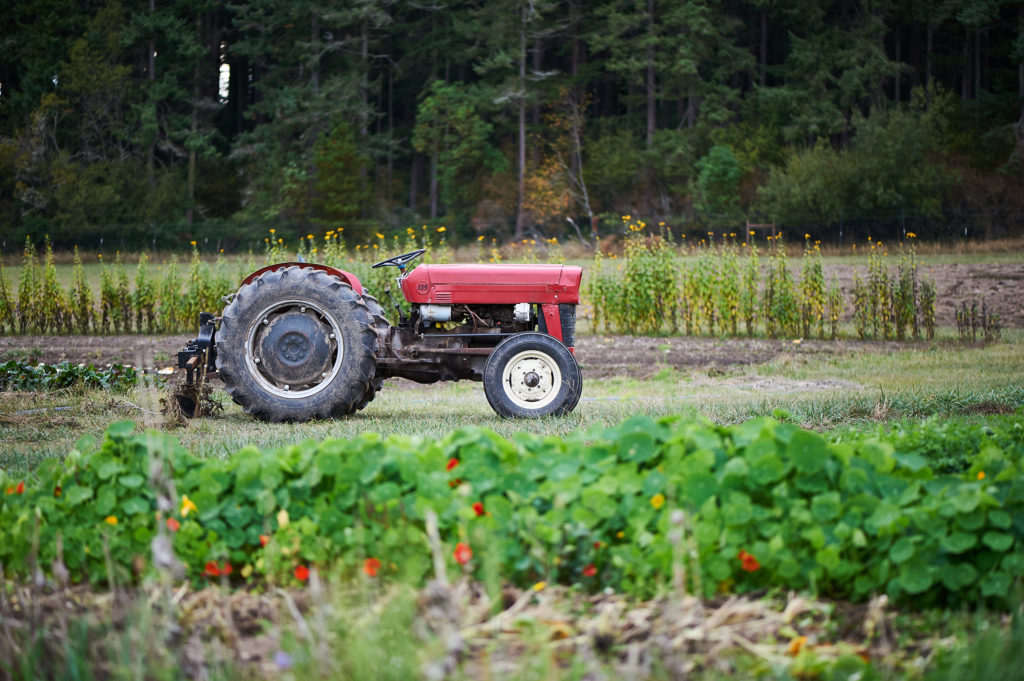 Regional
Regional
The vast majority of the world’s seed is grown by a relatively small number of seed producers. The companies that sell these seeds market globally, and so they choose to carry varieties with universal appeal. This means that the varieties aren’t bred to excel in any particular bioregion, but rather to perform “good enough” in a vast number of prime farming regions, usually with the help of chemical fertilizers and pesticides. They are bred for uniformity, mechanical cultivation and harvesting, ship-ability and shelf life. However, when grown on smaller organic farms and gardens, especially those outside of fertile farming regions, these varieties can disappoint. Organic, low-input, and ecologically-oriented growers need varieties that are bred and adapted to meet the specific challenges of their particular region, whether it be pest and disease resistance, cold tolerance, drought tolerance or ability to thrive in marginal soils.
As market farmers, we have grown hundreds of vegetable varieties to sell through our CSA, farmers markets, restaurants and grocery stores. Every year, we perform variety trials to assess which ones thrive in our particular Northwest soils and climate. Our seed catalog features these winning varieties, and we are confident they will also excel in fields and gardens across the Northwest and other cool, northern climates. Furthermore, by saving seeds only from the best plants, selecting for beauty, vigor, disease resistance, and tolerance to extreme temperatures, we have further adapted these varieties to our corner of the world.
As our planet faces increasing challenges of climate change, food and water shortages, and corporate consolidation, it’s vital that we decentralize the seed system. We believe it is the regional seed producers, not multinational corporations, which are most fit to understand and adapt to the needs and challenges of a particular growing region.
